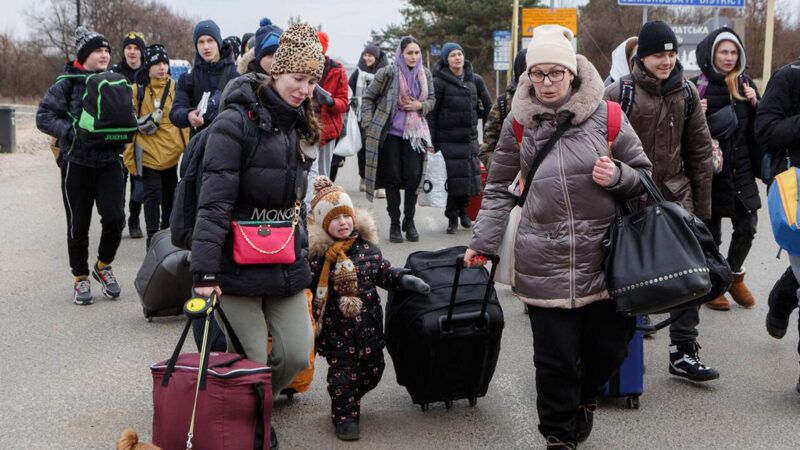Ukrainians Find Refuge in Previously Unwelcoming Places
Nearly 4 million people fled Ukraine in the first month after the February 24 invasion, and thousands have left each day since.

The mass displacement of Ukrainians triggered by Russia's invasion constitutes "the fastest growing refugee crisis in Europe since World War II," according to U.N. High Commissioner for Refugees Filippo Grandi. Nearly 4 million people fled Ukraine in the first month after the February 24 invasion, and thousands have left each day since.
As of March, most fleeing Ukrainians had settled in Poland. Smaller numbers found refuge in nearby Hungary, Slovakia, and Germany. Ukraine's tiny neighbor and Europe's poorest country, Moldova, has welcomed more than 350,000 Ukrainian refugees.
Politicians across Europe have extended a helping hand to these migrants, even in nations where refugee inflows previously have been unwelcome. "These are not the refugees we are used to," said Bulgarian Prime Minister Kiril Petkov. "These people are Europeans. There is not a single European country now which is afraid of the current wave of refugees."
Problematic though that distinction may be, cultural, linguistic, and historical similarities have indeed helped Ukrainian refugees find willing hosts in Europe. Ukrainians do not need to secure visas before arriving in Ireland, and they may work there and access public benefits once they arrive. The resettlement effort in Poland has been largely bottom-up, with thousands of citizens offering to accommodate refugees in their homes. The European Union as a whole will provide refugees with short-term residency and work authorization, among other benefits. Many of the Ukrainians who have been forced to flee are staying with relatives who left Ukraine after the 2014 Russian invasion of Crimea.
The U.S. is making some accommodations as well. On March 3, Homeland Security Secretary Alejandro Mayorkas gave Ukrainians temporary protected status, sparing an estimated 75,100 Ukrainians in the U.S. from deportation and allowing them to work legally. Immigration and Customs Enforcement announced in early March that it would halt deportations to Ukraine, Russia, and seven other countries in the region.
The Biden administration can do more. A special student relief designation would relax academic requirements for Ukrainian students in the U.S. and allow them to work while attending school. More efficient visa application processing would help Ukrainians hoping to join relatives in the United States. The current backlog saw 140,000 family-based green cards—62 percent of the total cap—go to waste in fiscal year 2021.
President Joe Biden finally announced in late March that the U.S. would accept up to 100,000 Ukrainian refugees. But the low number and lack of a detailed intake plan are disappointing, and they do not reflect the moral imperative the U.S. has to help Ukrainians.


Show Comments (37)